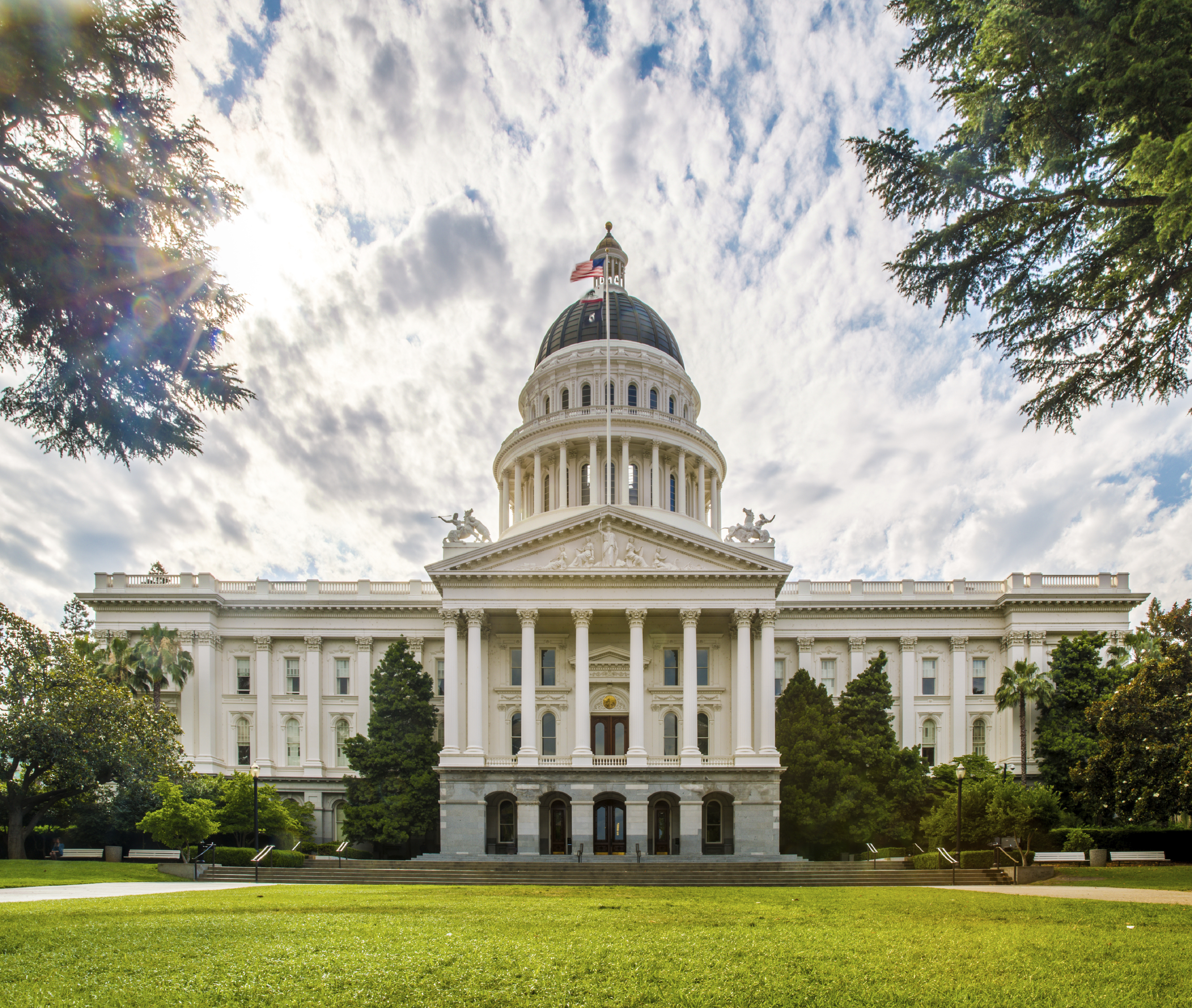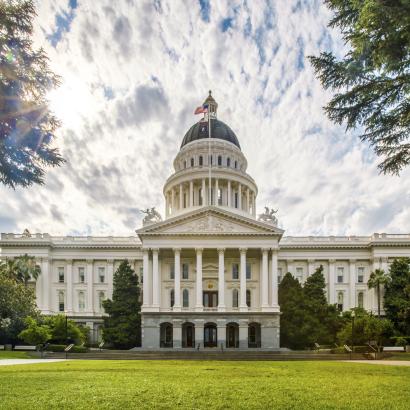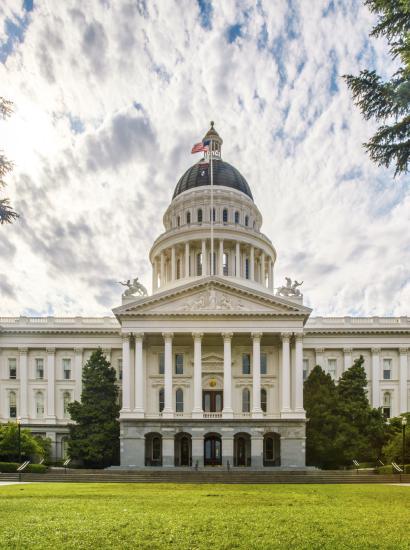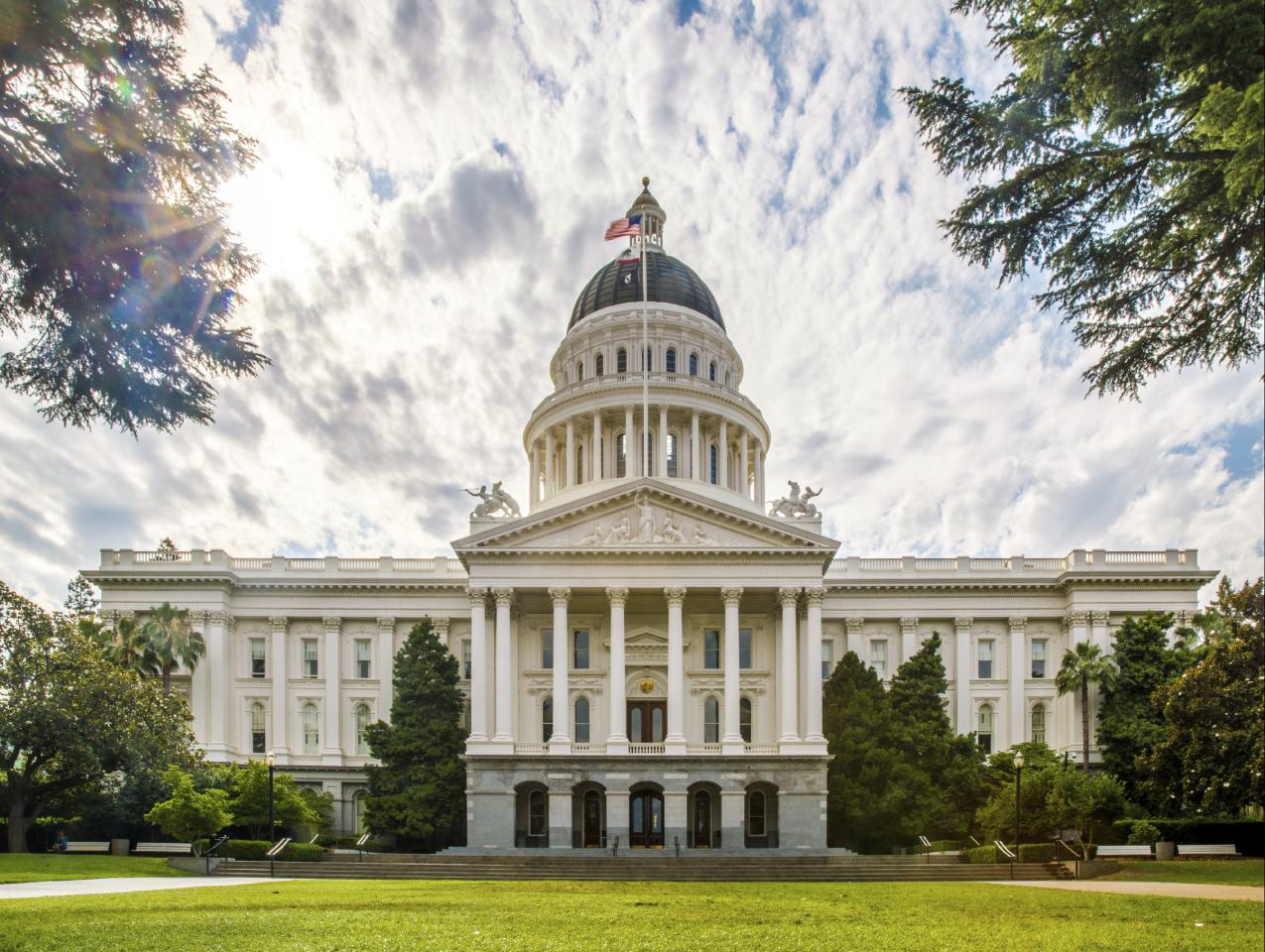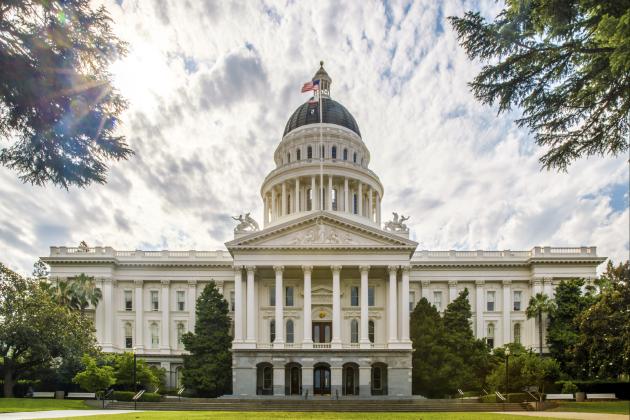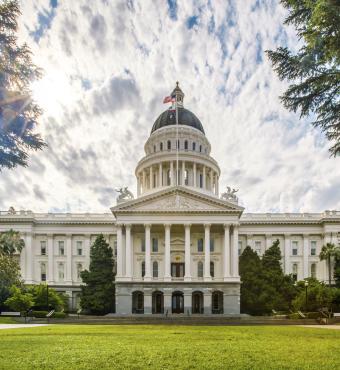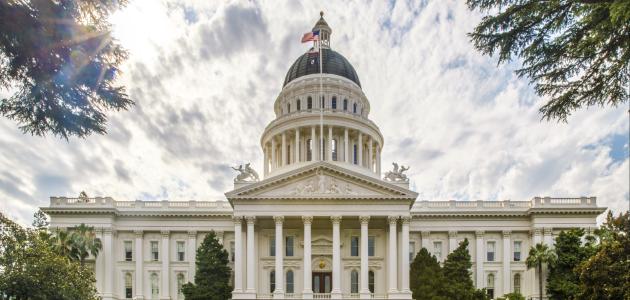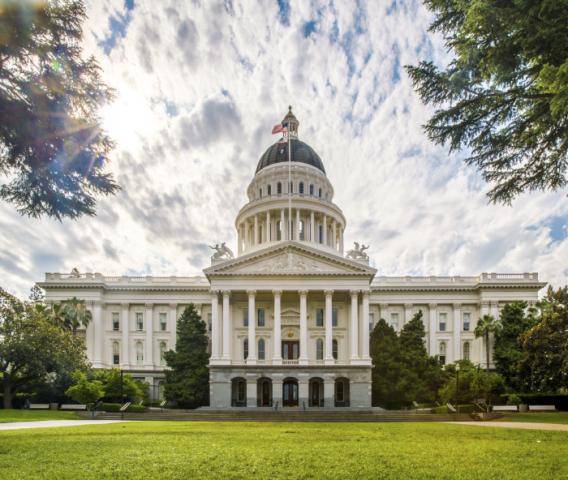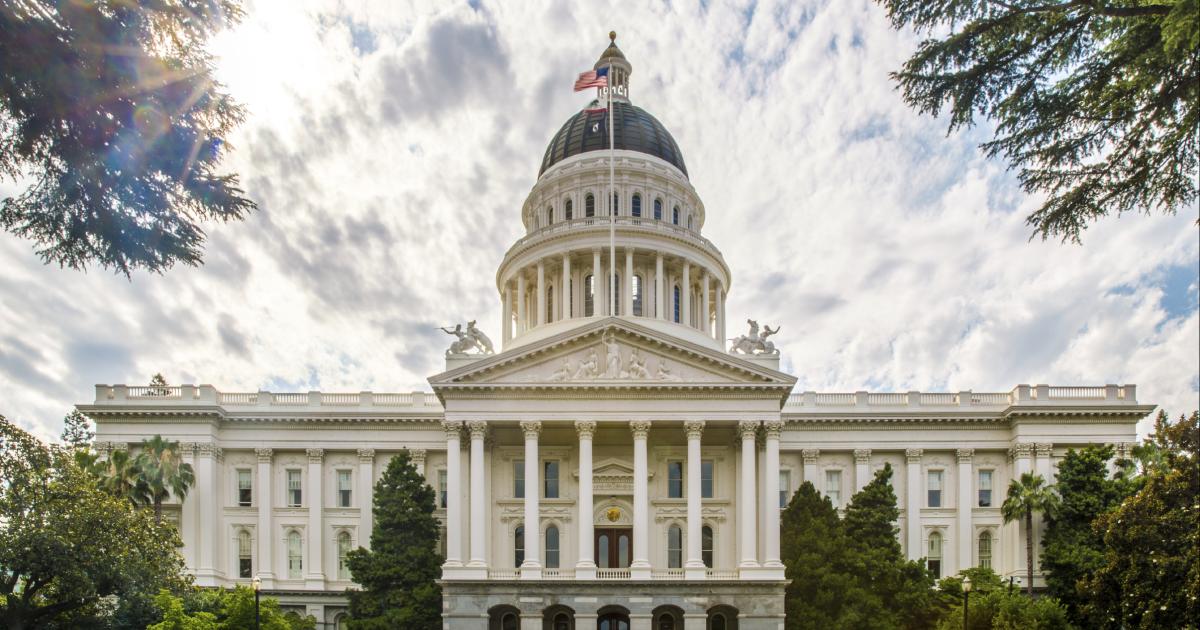- Energy & Environment
- Politics, Institutions, and Public Opinion
- State & Local
- California
“East is east and west is west, and never the twain shall meet.” Rudyard Kipling was referencing the British Empire. He might as well have been talking the divide between Washington, D.C., America’s capital, and Sacramento, the capital city of America’s nation-state.
How do the two political hubs contrast? With a nod to another English scribe, let us count the ways.
The Big Speech: Last week, official Washington came to a halt for President Obama’s final State of the Union address. The big speech didn’t lack for drama or theatrics – the White House purposely leaving an empty seat in the First Lady’s gallery to highlight gun-related deaths. With all commercial and cable news networks covering the speech live and in prime time, that gesture didn’t go unnoticed.
Now, the Sacramento contrast. Governor Jerry Brown’s State of the State Address will be live at 10 a.m. on the West Coast this Thursday. That forces local stations to choose between a policy speech or such civic-minded fare as The View and The Price Is Right.
In California, television doesn’t accommodate the political class. The Governor’s big speech won’t go live, save for the California Channel (think: C-SPAN for state government) and folks with enough bandwidth to handle Internet streaming.
In fairness to Brown, this has plagued all California governors not on a first-name basis with the movie-going public. Two decades ago, when I served as a speechwriter for then-Governor Pete Wilson, we scheduled the State of the State for 5 p.m. California-time, to coincide with local news. Then, we had to twist arms to get on the air – albeit, with mixed results.
The Big Speakers: Then again, Barack Obama and Jerry Brown make for Democratic apples and oranges. Both are history-makers – Obama, the nation’s first black president (sorry, Bill Clinton and Toni Morrison); Brown, California’s oldest and longest-serving governor.
Obama has a bully pulpit and intends to use it in 2016 by issuing executive orders, traveling abroad, and generally not laying low while the nation chooses his successor.
Brown likewise has a bully pulpit – but rarely exercises it beyond Sacramento. California’s Governor occasionally ventures beyond the Capitol comfort zone during the fall’s bill-signing season. Otherwise, he’s not one for high-profile events in big media markets.
But here’s the funny thing: at this point in their respective tenures, Brown may be the one with more power to exercise. Unlike Obama, he doesn’t have a dysfunctional legislature that, when it’s not fighting among itself, is trying to stifle the presidential agenda. Because California’s governor has line-item veto authority that allows the executive to “blue-pencil” spending – permanently removing items from the budget unless the State Legislature overrides the action – he enjoys strong leverage in the budget debate. It also works to the governor’s advantage that under Proposition 25 the State Legislature is racing against the clock to cut a spending deal.
Brown understands all of this, which is one reason why he released his budget plan only a few days after the State Legislature returned to Sacramento earlier this month. Anticipating a showdown once the state budget goes through its May “revision,” Brown wanted to underscore the point that he had no intention of blowing through this year’s revenue surplus, despite the State Legislature’s tendency to spend money as quickly as it’s minted.
As for Obama: earlier this month, he vetoed a Republican budget bill meant to unravel Obamacare. However, his proposed spending plan for the next fiscal year won’t be revealed until next month, a week later than first advertised. Whereas Sacramento likely will complete its budget before the July 1 fiscal deadline, Washington’s spending debate could be an unappetizing hash of threatened government shutdowns, continuing resolutions, election-year posturing, and new and creative ways to undercut presidential executive actions.
Legislative Bodies: Both the U.S. Congress and California’s State Legislature are under one-party control. From there, the similarities end. First, there’s the matter of volatility. Congress has changed hands three times in the past 20 years. In Sacramento, Democrats have run the State Legislature for the past 45 years – save for a brief moment in the mid-1990’s when Republicans ruled the State Assembly.
And there’s the matter of tenure. Thanks to California’s voter-approved term-limits law, Sacramento’s legislative leadership is a revolving door. Dating back to 1991 and the beginning of term limits, the state’s seen four governors and 12 Assembly Speakers. In Washington: four presidents and six House Speakers.
Another way to look at it: only two Democrats – Richard Gephardt and Nancy Pelosi – have led the House Democratic caucus the past two decades, while majority Democrats in Sacramento constantly reshuffle their deck (note: this may change with 2012’s Proposition 28 altering California’s term-limit restrictions).
The Media: Mark Twain famously quipped: “there is no native criminal class except Congress.” That’s a compliment, compared to what’s said these days on social media and conservative talk radio. According to a December 2015 Gallup survey, Congress saw an approval rating of just 13%. As you’ll see here, the public’s felt this way for some time.
In California, voters divide evenly on the State Legislature – 41% approve; 40% disapprove, per the Public Policy Institute of California. A year ago, the Legislature’s approval stood at 49%.
Why the difference? You can argue the appearance of being hard at work: Sacramento lawmakers passed more than 700 pieces of legislation in 2015, down from 1,000 in 2014. The present Congress can claim less than 500 enacted laws or passed resolutions.
And there’s the matter of harmony: while Brown and the Golden Dome have their differences over spending and a few other high-profile matters, it’s nothing like the partisan combat zone that stretches from the White House to Capitol Hill.
Here’s one other possibility as to why Sacramento outpolls Washington: lack of a media microscope. Once Arnold Schwarzenegger left town in 2011, out-of-town television bureaus promptly bailed on the State Capitol. At the same time, California’s newspapers have slashed their Sacramento bureaus.
In Washington, news organizations like The Washington Post, The New York Times, and Politico engage in bidding wars for top writing talent. In Sacramento, 2016’s hottest news organization may be CALmatters – a nonprofit venture featuring former state journalists.
The bottom line: out-of-sight, out-of-mind may be a boost to lawmakers’ approval numbers. But a contracting Capitol press corps does not bode well for California’s future.
Like many an American, I’ve had the good fortune to live on two coasts. I was born and raised in the nation’s capital. Work took me to California’s capital. Before taking Horace Greeley’s advice, I was assured I’d enjoy Sacramento because – and this isn’t the kind of thing the local Chamber of Commerce brags about – it was an easy escape to Lake Tahoe, Wine Country, San Francisco, and Yosemite; a short flight to Los Angeles or Las Vegas.
That might be the best argument in Sacramento’s favor – even if it is a backhanded compliment.

PROPOSITION 25
Passed by voters in 2010, Proposition 25 removed the two-thirds supermajority requirement to pass a state budget. To enforce an on-time passage of the budget, legislators forfeit their salary between the June 15 deadline and passage of the budget. In 2011, State Controller John Chiang declared the passed-budget not-balanced and withheld salary payments to legislators. Democratic legislators promptly sued the Controller stating that it was the State Legislature’s prerogative to determine whether a budget is balanced, an argument with which the state courts ultimately agreed.







